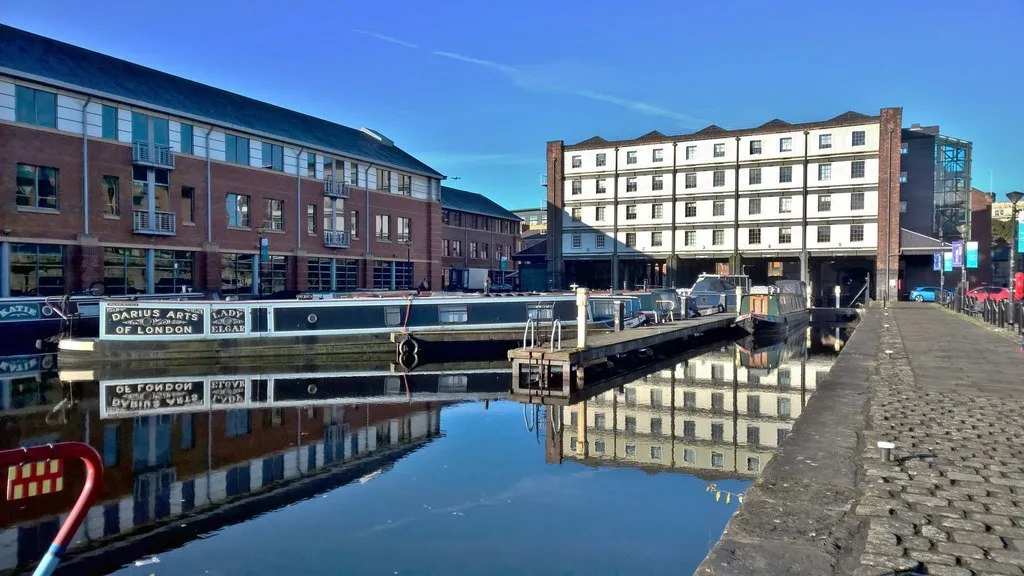Good morning readers.
As one expert put it to Victoria yesterday: “The military tail is wagging the energy policy dog.” Did you know that the government’s preoccupation with nuclear energy as a solution to the energy crisis might be more about propping up the military side of things, which might otherwise be unaffordable? Or that Sheffield — once a proud “nuclear-free zone” — is now producing the parts needed for nuclear submarines? This and much more in Victoria’s compelling long read, which takes in everything from the only person who stood between the world and possible nuclear world war (life lesson: never follow the rules at work too rigidly) to why the co-existence of nuclear and wind farms might be beneficial.
Editor’s note: As you might expect from a piece this delicious, it takes considerably more effort than paraphrasing a press release. I am editing this at ten at night, because Victoria kept getting phone calls from sources giving her more and more great info. That’s okay — good journalism takes time, and sometimes you can’t rush it. It also takes money: for our co-working space; for our wages and for those of solicitors when we do a big investigation. If anything we do has ever taught you something or made you laugh or made you feel closer to this city, I’d appreciate it if you considered upgrading to a paid subscription. We couldn’t do work like this without paying subscribers.
Your Tribune briefing
🚨 A 17-year-old boy was charged with attempting to cause grievous bodily harm after three people were injured at a Sheffield school. The boy was arrested on Wednesday morning at Birley Academy, after two women in their 20s and a child suffered minor injuries, during an incident involving what is believed to be a broken piece of glass. He is due to appear before Sheffield Magistrates’ Court today.
🎱 Snooker legend Ronnie O’Sullivan was knocked out of the World Snooker Championships, after losing 13-10 to Stuart Bingham in the quarter-finals. This year’s championships have been a real upset for the world’s most successful players, with only Kyren Wilson out of the globe’s top 16 currently left in the tournament. The Times reports that “the seven-times champion was antsy and implored Desislava Bozhilova, the referee, to ‘chill’, before finally potting the ball”.
🇵🇸 Students at the University of Sheffield walked out of lectures and camped outside their Students Union this week, during a protest against the war in Palestine and their university’s links to the arms trade. The demonstration was led by the Sheffield Campus Coalition for Palestine, a coalition of staff, students, and alumni from both of the city’s major universities. A student spokesperson told NowThen: “We will not sit idly by and watch our institution wreak havoc in Palestine and across the Global South.”
Things to do
🖼️ Saturday sees the start of Open Up Sheffield, your annual opportunity to visit Sheffield area artists in their own studios. Now in its 25th year, Open Up is one of the largest and most successful open studio events outside London, and this year features more than 100 artists. The event runs across the next two weekends: the bank holiday weekend of 4/5/6 May and 11/12 May. Details of all the artists taking part and when their studios will be open is here.
🎛️ On Saturday, head to Hatch for a showcase of live electronic music from Chinabot, a record label devoted to “changing the dialogue” around Asian music. On the night three acts will perform including Neo Geodesia, a French-Cambodian audio visual artist, London/Seoul-based DJ and producer Jaeho Hwang, and French-Laotian multi-instrumentalist Ayankoko. Doors open at 7pm and tickets are £5-£12 (but organisers say no one will be turned away for lack of funds).
🌱 On Sunday, explore and discover Sheffield General Cemetery's mix of diverse habitats in a gentle stroll with local botanist Gerry Firkin. Now retired, Gerry has a keen interest in plants in the Cemetery and has led field meetings for Sheffield University, WEA and the RSPB since the 1980s. He has also taught plant ID for several years. The 1 hour 45 minute tour starts at the gatehouse at 11am and ends at the Samuel Worth Chapel where refreshments will be available.
How Sheffield learned to stop worrying and love the bomb
The Sheffield branch of the Campaign for Nuclear Disarmament no longer exists. It disbanded a couple of years ago, former member Jon Wallis tells me, because not enough people were showing up. “I need to take my details off the website,” he muses.
To those who oppose nuclear weapons, the evaporation of a key source of local opposition could not have come at a worse time. Forty years ago, Sheffield was officially a “nuclear-free zone” — there were even signs announcing this as you entered the city — but a lot has changed since. Sheffield Council quietly withdrew from Nuclear Free Local Authorities in 2001 and, in July 2021, the Ministry of Defence took over Sheffield Forgemasters, rescuing it from financial ruin and agreeing to invest £400 million over the course of a decade, specifically because the firm plays a crucial role in the UK’s ability to maintain its arsenal of nuclear weapons.

“The heart of what we do at Forgemasters is making parts for defence nuclear,” Ian Nicholls, the firm’s technical director, tells me. To be clear: the UK’s actual nuclear warheads aren’t made in Sheffield. These are manufactured by the Atomic Weapons Establishment, which is split across four sites and was also taken over by the Ministry of Defence in July 2021. Instead, Forgemasters produces specialist parts necessary for nuclear submarines, such as the four that currently make up the entirety of the UK’s Trident system.
Right now, the UK government is trying — and seemingly struggling — to replace those submarines. Parliament voted in favour of renewing Trident in 2016, after five hours of fierce debate. Within just two years, an enormous black hole in the project’s budget had begun to grow. The current estimated cost is £31 billion, with a £10bn contingency, and the year when the first of the new fleet will be ready has crept further and further into the future. (The current prediction is “the early 2030s”.) In early 2021, a source close to the project told the Sunday Times: “There are big risks in the programme and everyone’s worried about them — and their reputation.”
That may be bad news for other people, but it seems to be a great time to work for Forgemasters. “There’s a lot of investment in Forgemasters at the moment, unprecedented levels of investment,” Nicholls tells me, thanks to a “much bigger demand for those [nuclear submarine] parts than there has been in the past”. Only two days ago, the firm announced it had bought 21 acres of land near its existing factory, on which it will build “a new machining line to underpin production for the UK defence programme”.
Back in the 1980s, a Sheffield factory playing a vital role in renewing the UK’s nuclear deterrent would have surely provoked outrage. These days, apart from student activists and Sheffield Creative Action for Peace, not many people seem all that bothered. It’s a shift that Dr Stuart Parkinson, executive director of Scientists for Global Responsibility, has noticed as well. “We went through the Cold War, when there was a lot of justified fear about nuclear weapons but, as the Cold War ended, those fears dissipated and were replaced by other concerns,” he says. The fact that it has been so long since they were last used means they are “a more theoretical risk” in the minds of many. “The threat it poses is not getting much coverage in the mainstream media and that’s a problem, we need to have a much more public debate about whether this is a good idea.”

Comments
How to comment:
If you are already a member,
click here to sign in
and leave a comment.
If you aren't a member,
sign up here
to be able to leave a comment.
To add your photo, click here to create a profile on Gravatar.







